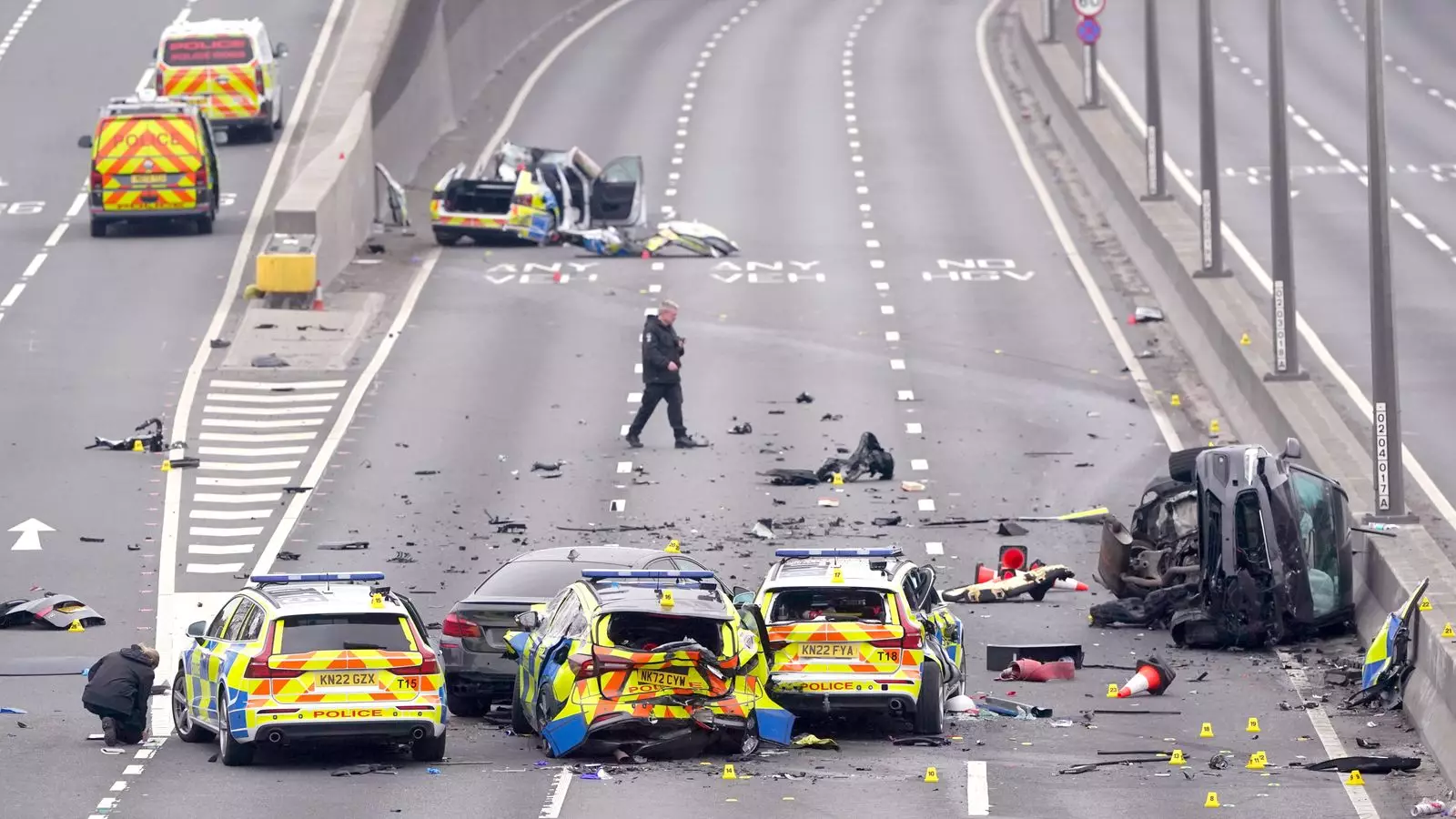The recent case of 20-year-old Mazyar Azarbonyad, who faces the repercussions of a dangerous driving incident that injured seven police officers, serves as a shocking reminder of the stark violations of responsibility that can occur behind the wheel. On that fateful night in early April, as he drove a beefy BMW— a car that can often symbolize power and thrilling freedom— Azarbonyad made a critical error in judgment during a supposedly innocuous scenario: taking a woman home after a date. What unravels post-incident is a multifaceted tale of recklessness, panic, and the irrevocable damage caused by irresponsible behavior.
When we dissect Azarbonyad’s actions, we can see the immense weight of choices that speak to a broader social issue, particularly around young drivers and their perceived invincibility. Driving without insurance is not simply a legal infraction but a blatant disregard for the safety of oneself and others, which becomes even more alarming when coupled with the failure to stop for law enforcement. The pressing question is: how did we allow such a cavalier attitude towards safety to manifest in our young adults? Perhaps it begins with a societal normalization of risk-taking behavior that mistakenly sanctifies reckless actions as a rite of passage.
The Fallout from Recklessness
The aftermath of Azarbonyad’s distressing choices could have gravely escalated beyond damaged vehicles and injuries sustained by law enforcement. The image of mangled police cars and debris littering the A1 is a stark reminder that a split-second decision can lead to a cascade of destruction. Despite the fact that the injured police officers were discharged from the hospital, this event could have resulted in irrevocable changes in the lives of everyone involved. One can only imagine the psychological toll on the officers, who were simply doing their job to uphold the law. Their injuries serve as manifestations of the very real dangers posed by those who refuse to abide by it.
More disturbing is the revelation that Azarbonyad, even after being warned not to drive due to the nature of his reckless behavior, defied the terms of his bail by getting behind the wheel four times in the days that followed. Such blatant disregard ignites frustration for those of us promoting civic responsibility. The prosecutor’s remarks about the defendant’s failure to act sensibly resonate deeply: why is it that some individuals believe themselves above the law? This reckless tempo of life, where immediate gratification trumps accountability, must prompt a societal reckoning.
Reflecting on Accountability and Reform
The defense presented by Azarbonyad’s solicitor showcased a narrative of panic and confusion—elements that often humanize offenders in the court of public opinion. We understand that mistakes happen, but the plea of remorse does little to mitigate the severity of the incident. It leads to an uncomfortable examination of culpability, particularly for a young man who seemingly could have made different choices. Should panic dilute personal responsibility? How can we instill a sense of accountability in a generation recklessly entwined with the freedom of the open road?
The wider implications of this case reach beyond just the actions taken on that night. They beckon a need for systemic changes in both driver education and policing procedures. If young drivers are to grasp the weight of their actions, educational initiatives must infuse responsibility into the thrill of driving. Policymakers and educators alike must work together to create meaningful programs that emphasize the gravity of dangerous driving and the far-reaching consequences—we can’t rely solely on punitive measures after the fact.
In a society striving for progress and safety, we must confront the uncomfortable truths laid bare by Azarbonyad’s story. Reckless behavior must not be condoned nor excused, and restoring faith in road safety hinges upon collective awareness and accountability. This incident serves as a mirror reflecting our societal values—are we prepared to truly advocate for responsible conduct in our communities?

